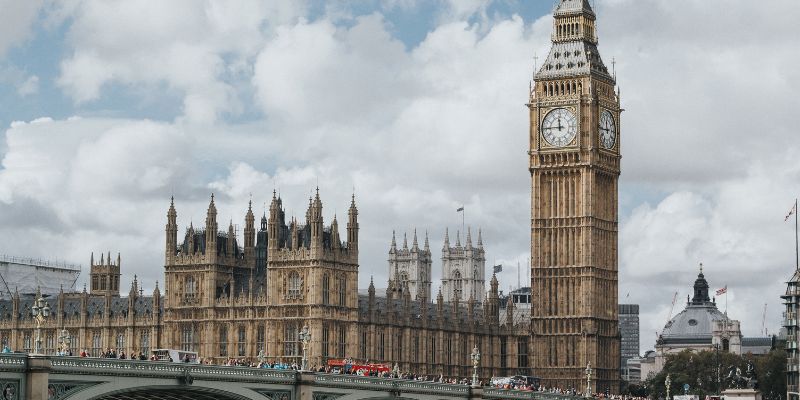Policy and inquiries at the Global Food and Environment Institute

Working with policy professionals is a key part of our vision to create an equitable and environmentally sustainable global food system.
Our multidisciplinary membership represents a wide range of research and experience which can help in developing a research-informed approach to regional, national and global policy.
This page features examples of how our members have worked with policymakers, and research that can be directly applied to the development of food systems policy.
We also work with Policy Leeds to facilitate meetings between policymakers and researchers. To speak with one of our food systems experts, email Policy Leeds via policyleeds@leeds.ac.uk.
Please note, some content published on external websites may not be fully accessible.
Agriculture and environment
- Unlocking private investment in soil carbon in England. May 2023.
Professor Guy Ziv, University of Leeds, Matthew Orman, Sustainable Soil Alliance and Professor Mark Reed, SRUC’s Thriving Natural Capital Challenge Centre, CEO of Fast Track Impact, and Research Lead for the IUCN UK Peatland Programme offer recommendations for the design of high-integrity agricultural soil carbon markets highlight difficulties for farmers to enrol in both Sustainable Farming Incentive (SFI) and emerging agricultural soil carbon markets. To unlock private finance, new public schemes should focus on paying farmers for soil carbon testing, and keeping carbon stored in already well-managed, carbon-rich soils. - The space age: minimising the use of crates in pig production. December 2022.
Dr Katie McDermott at the National Pig Centre will use funding from Research England to work closely with the Department for Environment, Food and Rural Affairs to explore how the amount of time a sow (female pig) spends with restricted movement can be reduced whilst she nurses her young. - Using geothermal mine water energy for food production. April 2022.
Using geothermal energy from mine water for food production may increase food security in a low carbon way. An action plan to establish a pilot in Leeds has been developed with stakeholders. - Restoring agricultural soils. January 2022.
Megan Tresise, a third year PhD student, was seconded from their PhD to the Parliamentary Office of Science and Technology (POST) Fellowship from October to December 2021. Megan produced the Restoring agricultural soils POSTnote that was published in January 2022, providing an overview of some of the key research areas in soil science, as well as developing soil policy initiatives. - Expanding the agriculture sanitation circular economy. September 2021.
How expanding the agriculture-sanitation circular economy can address multiple United Nations (UN) policy objectives, through the recovery of water, biomass, and nutrients from sewage at scale.
Urban food systems
- Food Hubs for Security, Health, Inclusive Growth and Sustainability. April 2023 (PDF). This policy brief is based on research conducted at the University of Leeds in collaboration with Leeds City Council and Food Wise Leeds, funded by the Research England Policy Support Fund, and supported by Policy Leeds.
- Evidence-based policy placement: Delivering the Leeds Food Strategy. December 2022.
Dr Neil Boyle explains how he will use funding from Research England to facilitate a part-time secondment to Leeds City Council to work collaboratively with policy teams to support evidence-based policy making and delivery of the Leeds Food Strategy. - The importance of Newcastle’s Grainger Market as an affordable source of food (PDF). December 2022.
- Tackling childhood food poverty in the UK. December 2020.
Actions needed from national government and local authorities to reduce childhood food poverty, identified by a panel of experts. - Growing a resilient food system in Leeds. September 2020.
Leeds has many strengths and opportunities to develop a climate resilient food system, but leadership and vision are needed.
Global food systems transformation
- Delivering a just transformation through the Koronivia Joint Work on Agriculture. October 2022.
The Koronivia Joint Work on Agriculture (KJWA) was established by the (United Nations Framework Convention on Climate Change) UNFCCC to address how agricultural transformation could aid tackling climate change. A review of KJWA discussions ahead of COP27 reveals important gaps in the efforts of KJWA to promote a socially and environmentally just transformation of agriculture. - How does nutrition feature in climate-smart agricultural policy in Southern Africa? (PDF) August 2020.
The Global Challenges Research Fund project Agricultural and Food systems Resilience: Increasing Capacity & Advising Policy (GCRF-AFRICAP) produced this policy note on the challenge facing Africa when it comes to nutritious and environmentally sustainable ways of feeding a growing population. Read the full working paper in Sustainability. - International food trade and nutrition security (PDF). March 2020.
GCRF-AFRICAP produced this policy note on the impact that different international trade patterns and disruptions might have on future nutrition security.
Food waste
- Food Waste. July 2024.
Dr Carrie Bradshaw, School of Law, evaluates interventions for preventing edible food waste. This POSTbrief looks at the existing evidence base, government interventions in the food supply chain and legislation for surplus food redistribution.
Inquiries
Our academics and researchers have also given evidence in the following inquiries:
- Fairness in the food supply chain (PDF, 212KB) included Fairness in the food supply chain oral evidence from Dr Carrie Bradshaw.
- Soil Health featured evidence from Dr Ruth Wade and Professor Pippa Chapman.
- UK trade policy: food and agriculture included evidence from Professor Fiona Smith.
Image of Big Ben and the Houses of Parliament in London via Marcin Nowak/Unsplash.com.